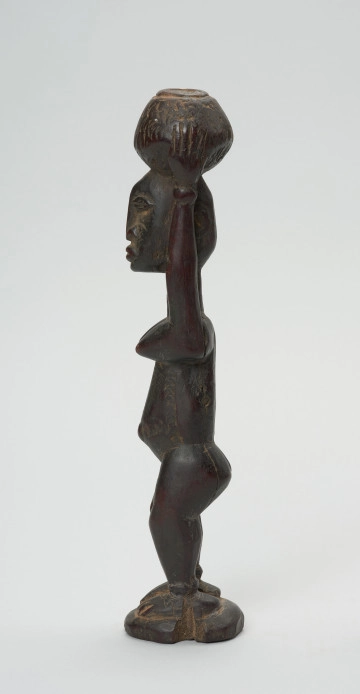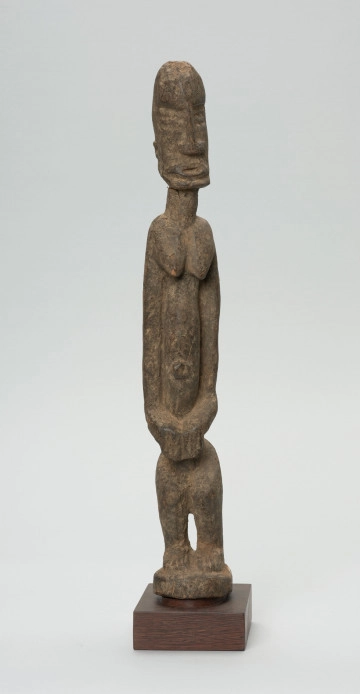
Figure - woman
między 1951 — 2000
National Museum in Szczecin
Part of the collection: Collection of Dogonian art
Female fertility is an important aspect of Dogon life, yet menstrual bleeding, which is part of the menstrual cycle that testifies to a woman's well-functioning reproductive system, arouses great reluctance and even fear among the inhabitants of the Bandiagara Escarpment.According to oral tradition, the first menstrual blood appeared in the world when Yurugu, a rebellious descendant of the god Amma, the creator of the world, committed incest with his mother. During the act of intercourse, blood flowed from the defiled womb of Mother-Earth. This event caused the divine spouse to feel disgust with the Earth and to turn away from it. According to the Dogon, menstruating women are unclean. They are called yapune, as opposed to ayane, i.e. women who do not menstruate. The blood of yapune is bad for altars, the earth, bodies of water, it also harms men. Therefore, women menstruate in seclusion, in specially constructed houses called punulu or yapunuli. They are usually located outside the village walls. A menstruating woman can leave punulu only for the time of bathing. She goes to the place of ablution along a designated route. Taking a different route could lead to staining the ground. Punulu houses are round, about 2 metres in diameter and 1.7 metres high. They are made of natural stone, sealed with earth, have flat roofs and no windows, the only opening being a door. The outside walls are sometimes decorated in symbols referring to fertility. Women, who wish to have children, hang curved wooden sticks over the domolo entrance. There is also a small area around the punulu, fenced off with a wall, marking the boundaries of the courtyard.
Ewa Prądzyńska
Author / creator
Dimensions
cały obiekt: height: 29 cm, width: 5,5 cm
Object type
figure
Creation time / dating
Creation / finding place
Identification number
Location / status

między 1951 — 2000
National Museum in Szczecin

między 1951 — 2000
National Museum in Szczecin

między 1951 — 2000
National Museum in Szczecin
DISCOVER this TOPIC
Museum of King Jan III's Palace at Wilanów
DISCOVER this PATH
Educational path